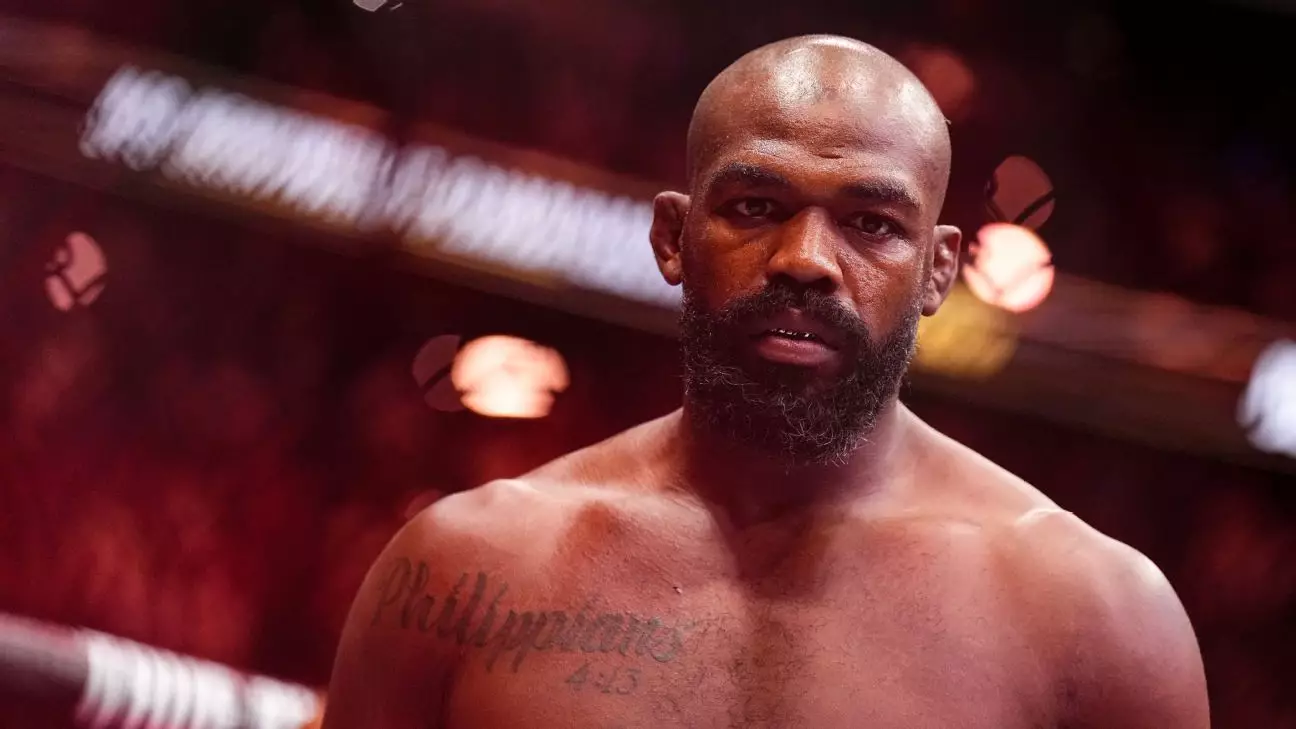In a moment that could have been monumental, UFC CEO Dana White delivered Jon Jones’ retirement news at a postfight conference in Baku, Azerbaijan. The atmosphere was far from electrifying; it was almost a quiet resignation. White’s underwhelming tone suggested disappointment—not just in Jones’ sudden departure, but in a narrative of missed opportunities that had been woven over years of anticipation. Jones, long heralded as one of the greatest mixed martial artists of all time, opted to craft the end of his career on his own terms, much like he has done throughout his controversial tenure in the UFC. For fans and analysts alike, this decision begs the question: is this truly the final chapter of Jones’ tumultuous career, or merely a strategic pause?
The Selfish Genius: An Athlete’s Duality
It is difficult to deny that Jon Jones embodies a paradox. On one hand, he is celebrated for his unparalleled skill and dominance in the octagon—his victories over heavyweight legends and Hall of Famers are the stuff of legend. On the other, he is often characterized as perhaps the most self-serving fighter in UFC history. While his selfishness may have alienated many, it has also protected him, shaping a career that is both admired and criticized. Jones’ decision to retire effectively transitioned a highly anticipated showdown against interim heavyweight champion Tom Aspinall into an unfulfilled promise. His scathing remarks about Aspinall’s capabilities only added a shade of bitterness to what could have been an emblematic encounter in MMA lore.
Jones’ choice to vie for his legacy against former champion Stipe Miocic—42 and significantly past his prime—shines a light on his career-long priority: prioritizing personal narrative over competition. It was a calculated move designed to elevate his standing, but it left a host of unanswered questions and disappointed fans. The promise of a “100 percent” certainty from White regarding Jones vs. Aspinall proved to be just another instance of a fighter crafting his own mythology while leaving others in the wake of his self-importance.
The Relationship Between Jones and the UFC: A Tangled Web
Throughout his career, Jones has tested the boundaries of his relationship with the Fertitta-led UFC and later with Dana White. Despite numerous brushes with the law—a felony hit-and-run charge in 2015 being one of the most notorious—Jones remained the crown jewel of the promotion’s lineup. The UFC, in a rare display of loyalty, stood firmly behind him during his many crises, which raises an interesting discourse on the implications of fame, privilege, and accountability in the world of sports. Instead of facing the consequences of his actions, Jones’ stardom shielded him from real repercussions, symbolizing a troubling trend where celebrity can distort responsibility.
His actions often led to personal conflicts with fellow fighters, including his bitter rivalry with Rashad Evans. Jones leapfrogged Evans in a title fight, triggering not only a public feud but also a rift within their training camp. The animosity marked a departure from camaraderie to a bitter contest of betrayal and disappointment, a testament to how Jones has consistently placed personal ambition above team or kinship.
The Cost of Self-Preservation: A Reduced Activity
As the years progressed, Jones became increasingly selective about his opponents and fights. His limited appearances have sparked debates around the legitimacy of his status as the “Greatest of All Time.” He has faced criticism for seemingly ducking formidable challengers, creating an illusion of invincibility by minimizing risk. A prime example includes his reticence to engage in highly anticipated showdowns, such as one with former heavyweight champion Francis Ngannou. Reports indicated that Jones sought financial terms that were more aligned with boxing than MMA, prompting speculation that he was more interested in leverage than legacy.
Even as Jones remains a formidable competitor, the lack of engagement over the last decade has blurred the lines of what defines a champion. While fighters like Islam Makhachev stepped up on short notice to defend titles, Jones appeared more inclined to protect his own standing rather than contribute to the sport’s excitement.
The Enigma of Jones: Retirement as Strategy
By opting for retirement, Jones may have calculated his exit with precision, knowing that it allows him the flexibility of power in the negotiations of any potential future match. The very act of retiring provides him leverage, ensuring he can dictate terms, an aspect he has long mastered. It’s not about popularity or popularity contests; it’s about asserting dominance over his circumstances. If he ever chooses to re-enter the octagon, it will likely be from a position of strength, as he meticulously architects his foray back into MMA.
Jon Jones has navigated his career’s complexities not just through unparalleled talent, but through a keen understanding of self-interest—an attribute that has ultimately shaped him into both an icon and a polarizing figure. The retirement announcement may have left fans yearning for more, but the intrigue surrounding his return continues to fuel speculation and discussion around what will undoubtedly be a unique legacy in the world of mixed martial arts.

